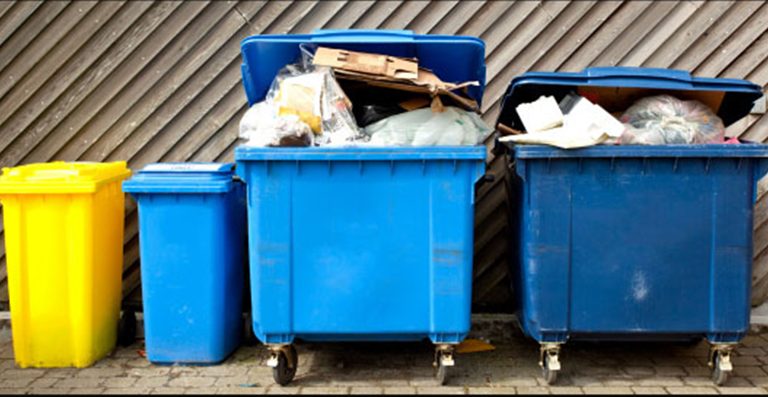Plastics – Changing Waste Generation Patterns
As a rule of thumb, a country produces waste in proportion to its economic growth. And when it came to waste generation, the United States followed through that rule for decades.
So if a country is affluent that would mean, it consumes more and consequently generates more waste. This is the cycle that usually follows. This cycle negatively affects the environment. But a recent study signified that in the U.S., something altered that rule and eventually broke it.
The growth of municipal solid waste (MSW) was compared to the growth of personal consumption expenditures (PCE) by researchers. Initially, MSW and PCE grew at the same rate—as expected. But a change was noted between 1995 and 2000, the growth of MSW slowed compared to the growth of PCE. This indicated that the amount of waste in the U.S. was no more proportionate to the amount of consumer spending.
In 2010, the data revealed another unexpected twist. Despite a continued rise in consumer spending, the amount of waste produced in the U.S. actually started to decline. Finally, the rule was broken. This change in the pattern of waste generation diverging from that of consumer spending came to be as “decoupling.”
What Caused the Decoupling?
The simple answer is plastics. To understand and identify the cause of the decoupling, researchers analyzed the various types of materials in the waste stream from the 1960s until today. The most significant change noted was an increase in the consumption of plastics. Instead of alternative materials like glass, paper, and metal, consumers were using more plastics.
Although it may seem counter-intuitive that the increase of a single material could cause a decline in waste overall, but if you consider the material plastics—it makes sense. Plastics are more lightweight than alternative materials, therefore, taking up much less space in landfills. To add to it, many plastic products and packaging have decreased both in thickness and in weight in the last two decades.
Today in the U.S. MSW includes 83 times more plastics than in 1960. Yet, the total MSW is only twice as large.
Waste Generation Without Plastics
If it wasn’t for plastics, consumers would be using more glass and metal in substitution. On average, products require 3.2 times more of those alternative materials than if plastics were used. When it comes to packaging specifically, the combined weight of alternative materials is about 4.5 times more than the weight of plastic packaging.
What if plastics were never introduced into the waste stream? The analysis and projections by researchers predicted that today’s waste would still be increasing at the same rate as consumer spending. This meant that the possibility of decoupling would be delayed by at least 30 years.
Although consumers use significantly more plastics than ever before, the properties of plastics actually significantly help reduce the amount and weight of material needed for packaging and container applications. The decoupling phenomenon highlights how plastics play a significant role in helping to reduce waste and improve environmental sustainability, even with increasing consumer spending habits.
Leave a Reply Cancel reply
Recent Posts
- Understanding The Materials That Are Used To Build Plastic Toys
- All You Need To Know About Food-grade Plastics
- A Glance At The Materials That Boost The Performance Of Plastics
- Understanding The Importance Of Exploring New Business Opportunities In The Plastic Industry
- Understanding The Importance Of Investing in R&D For The Plastic Industry
Categories
- 3D Printing
- AIPMA
- Automation
- Automobile Sector
- Bio Plastics
- Environment
- Innovations In Recycling
- Latest Innovations
- Molds & Dies
- News
- Packaging Industry
- Plastic
- Plastic Application
- Plastic Industry
- Plastic Market
- Plastic Myths
- Plastic News From The World
- Plastic Packaging
- Plastic Products
- Plastic Recycling
- Plastic Solar Cells
- Plastic Toys
- Plastic Waste
- Plastic World
- Plastics
- Plastics And Their Applications
- Plastics In Agriculture
- Plastics In Healthcare
- Plastics In Medical Industry
- Plasticulture
- Processing Machinery
- Recycling Machines
- Robotics
- Uncategorized
- Virtual Reality
Archives
- November 2023 (3)
- October 2023 (2)
- September 2023 (3)
- August 2023 (3)
- July 2023 (3)
- June 2023 (3)
- May 2023 (2)
- April 2023 (2)
- March 2023 (2)
- February 2023 (2)
- January 2023 (2)
- December 2022 (3)
- November 2022 (1)
- October 2022 (1)
- September 2022 (2)
- August 2022 (1)
- July 2022 (3)
- May 2022 (3)
- March 2022 (2)
- February 2022 (1)
- January 2022 (1)
- September 2021 (2)
- August 2021 (3)
- July 2021 (4)
- June 2021 (4)
- May 2021 (3)
- April 2021 (2)
- March 2021 (4)
- November 2019 (8)
- October 2019 (8)
- September 2019 (8)
- August 2019 (8)
- July 2019 (8)
- June 2019 (8)
- May 2019 (8)
- April 2019 (8)
- March 2019 (8)
- February 2019 (11)
- January 2019 (8)
- December 2018 (8)
- November 2018 (12)
- October 2018 (12)

